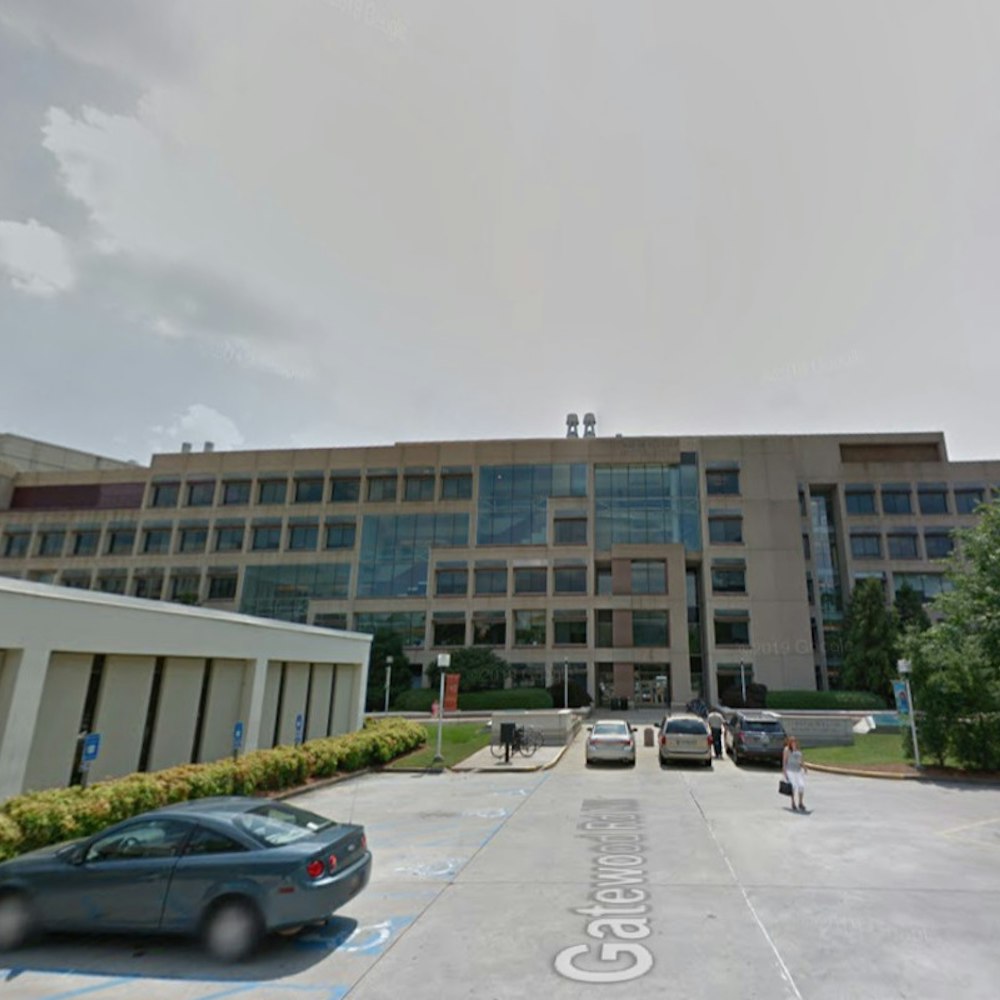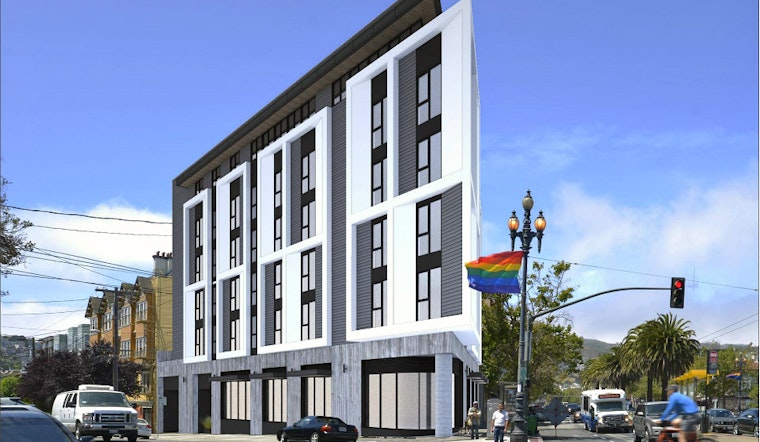
With all of the towering triangular apartment complexes popping up along upper Market Street, you may be wondering why the planned six-story mixed-use building at 2201 Market, on the southwest corner of Market and Sanchez, is still delayed. As it turns out, the building is facing a hurdle: a Discretionary Review filed by the Duboce Triangle Neighborhood Association (DTNA).
Why would DTNA get involved with a project outside of Duboce Triangle? According to the association’s land use committee chair, Gary Weiss, it’s because members have legitimate concerns with 2201’s design. Plus, DTNA has experienced past success in getting Upper Market developers to make building improvements—albeit on the other side of the street.
A couple of years ago, the organization was instrumental in negotiating with 2198 Market’s developer, Greystar Development, to get on-site affordable housing. According to Weiss, DTNA also got the North Carolina-based developer to change its national non-discrimination policy to reflect San Francisco’s own citywide policy.
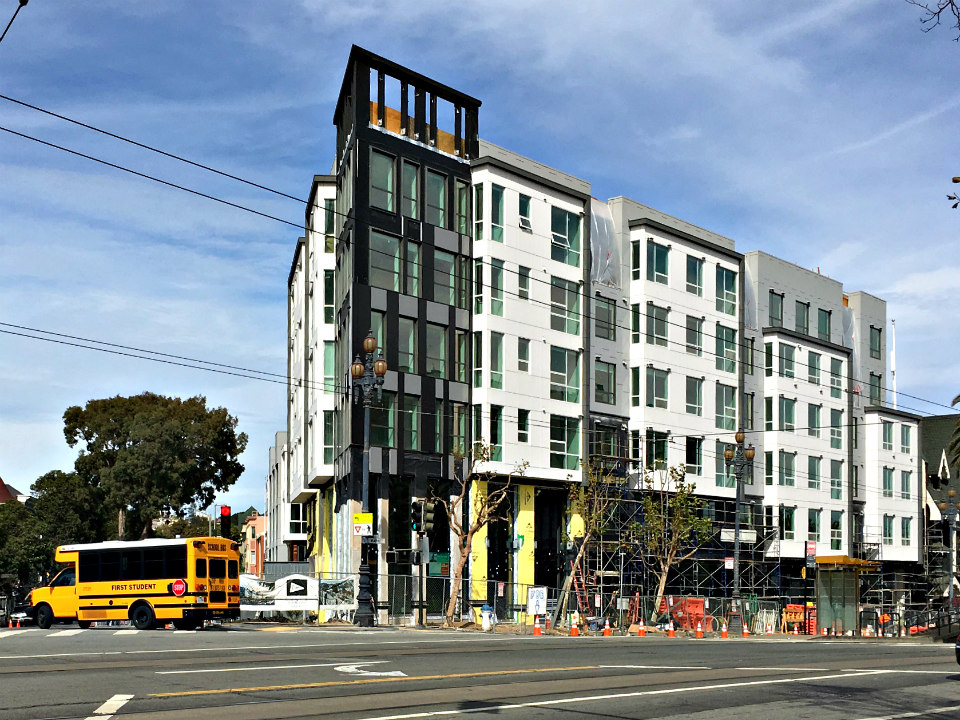
That's why, after taking issue with some of the renderings of 2201 Market that emerged earlier this year, DTNA felt justified when filing a Discretionary Review of 2201 Market Street. “A few things glaringly stood out,” said Weiss.
Four, to be exact.
The first is that the proposed design includes a corner overhang. Aesthetics aside, DTNA stated in its Discretionary Review application that “an unenclosed corner at ground level would invite tagging, transients and present a security problem, as it's visually blocking the space.”
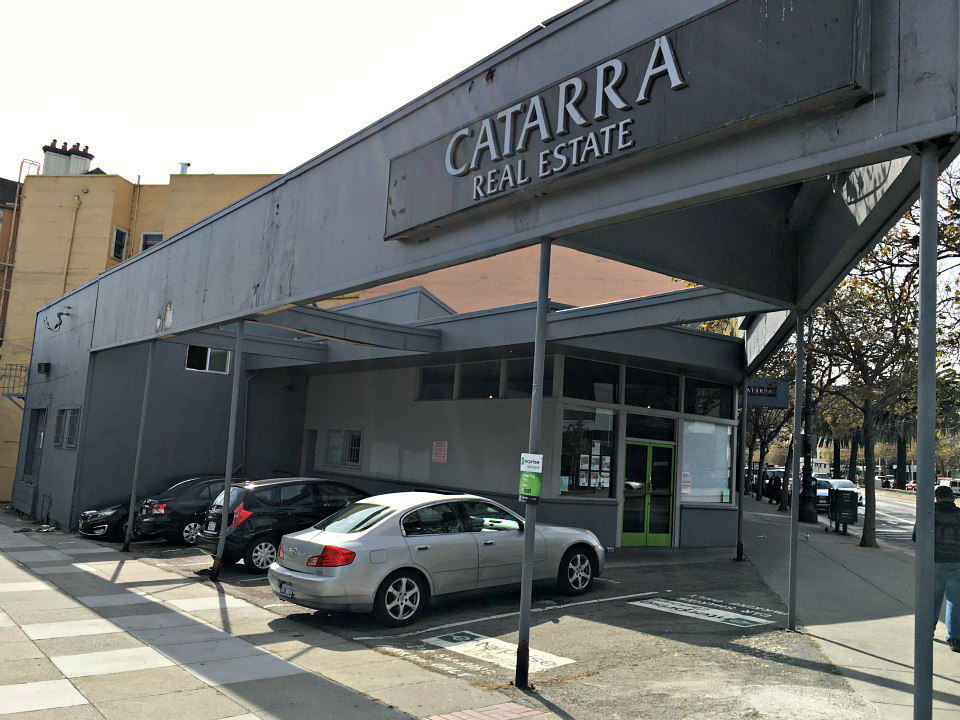
Andrea Aiello, of the Castro/Upper Market Community Benefit District, also wrote a letter to Planning about the proposed overhang, saying that “the nice cozy spot right on the corner” could invite homeless encampments.
Both Weiss and Aiello said that Chris Foley, a partner at 2201 Market's developer, Polaris Pacific, agreed to enclose the area in question. However, Foley, who was contacted multiple times for this story, was not available to comment.
DTNA’s second point of contention is with the development’s mandated 12 percent below-market-rate housing, which would work out to two of its 14 units if it was built on-site.
DTNA is requesting that Polaris provide the mandated two units of affordable housing on-site, or at the very least, in the neighborhood. “The number of affordable housing units has disappeared in the neighborhood,” said Weiss. “We want those two units on-site.”
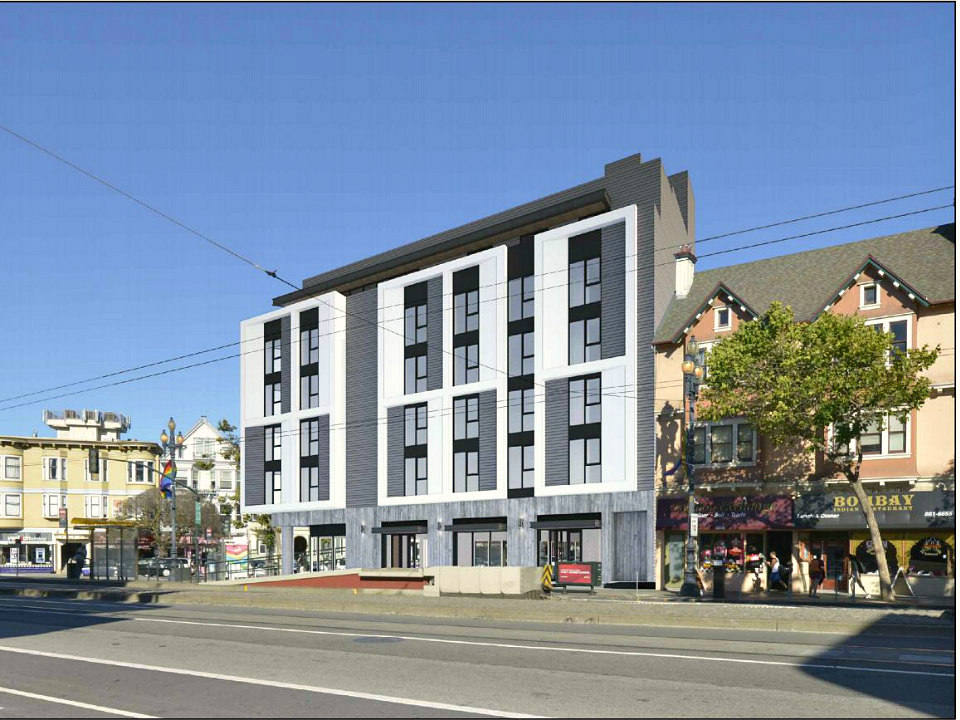
At October's Castro Merchants’ meeting, Polaris Pacific’s Andrew Bieker said that “Polaris is looking for [the development] to be 12 percent [below market rate] because 25 percent doesn’t make sense with only 14 units in the building ... We’re looking to get grandfathered in.”
According to Bieker, Polaris is “working with the city” to comply with requests made at a September 22nd Planning Commission meeting.
However, according to Planning’s Gina Simi, this isn’t a question of Polaris’ development being “grandfathered” into anything. “Increased below-market-rate requirements only apply to projects with 25 or more units,” wrote Simi. “Since there are only 14 units total, this project is subject to 12 percent on-site [affordable units]."
Simi said that Polaris could either build the units on-site, build them at another site in San Francisco, or elect to pay the city’s in-lieu fee, which goes into developing affordable housing in the city.
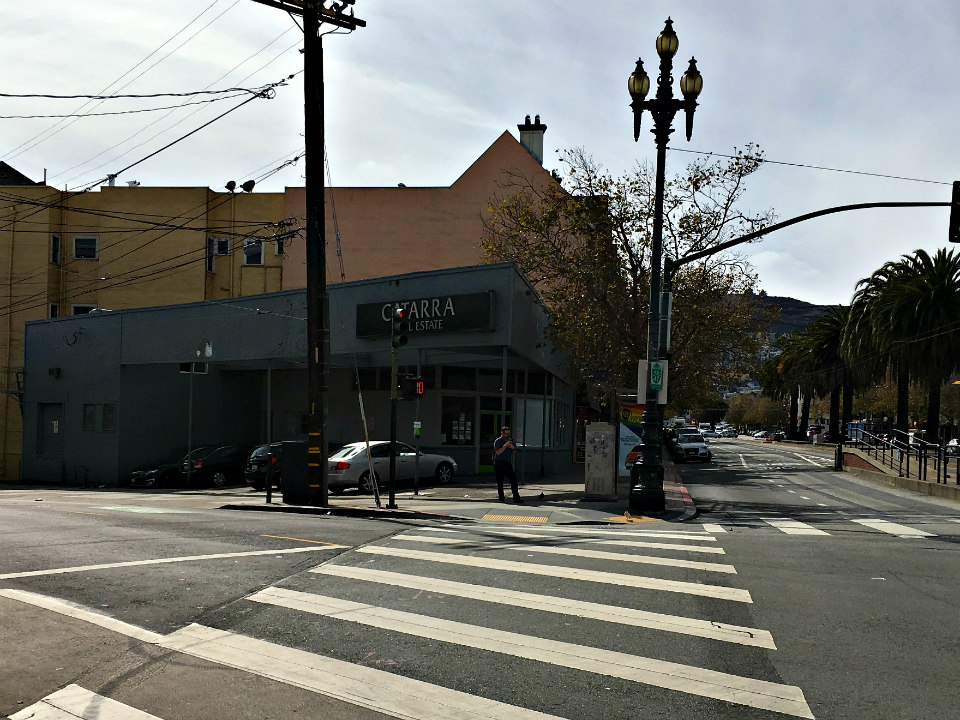
Issues three and four deal with the size of the ground-floor commercial space, and access to the building's roof, respectively. “Large spaces attract big-box and formula retail,” said Weiss. “A lot of the neighborhood’s big commercial spaces are vacant, and most of the smaller ones are taken.”
Bieker said that Polaris is willing to split the large ground-floor commercial space into two 3,000-square-foot spaces to attract smaller businesses. Polaris also said that it will allow all tenants access to the roof, unlike previous renderings, which only provided roof access to the building's penthouses.
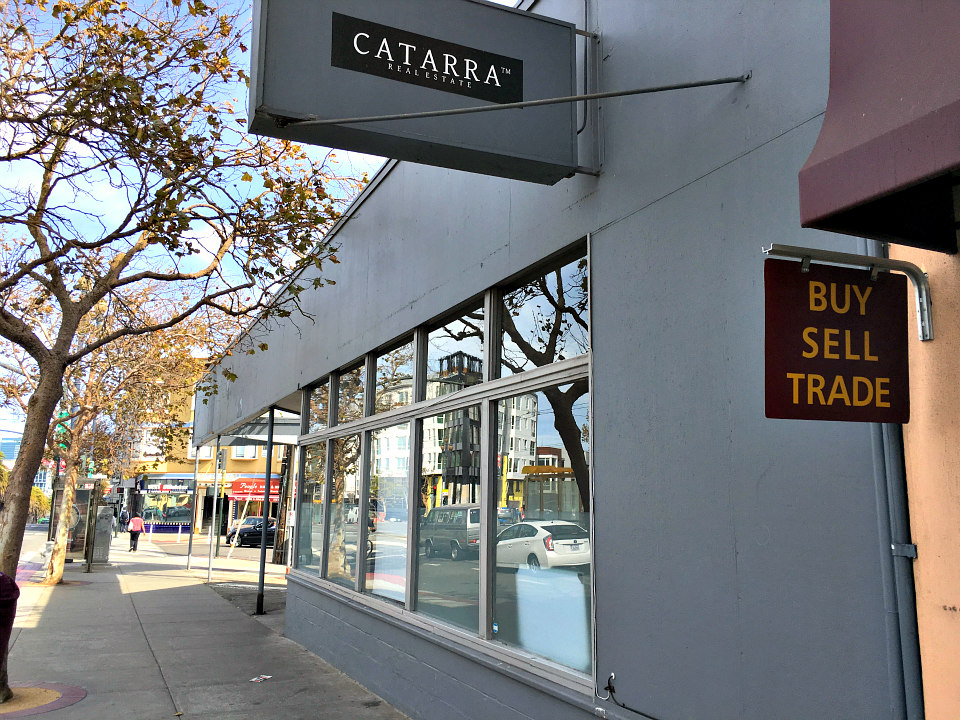
Weiss said that if Polaris is willing to agree, in writing, to all four changes that DTNA requested, the organization would withdraw its request for a Discretionary Review.
Regardless, the Castro Merchants voted earlier this month against supporting DTNA’s Discretionary Review. Castro Merchants president Daniel Bergerac confirmed that, following a 17-14 vote, he submitted a letter urging Planning to push the 2201 Market Street development forward.
The Planning Commission will meet on November 10th to discuss the Discretionary Review of 2201 Market Street. Commercial tenants, including Catarra Real Estate, have been permitted to stay in the space until construction begins.



-2.webp?w=1000&h=1000&fit=crop&crop:edges)





